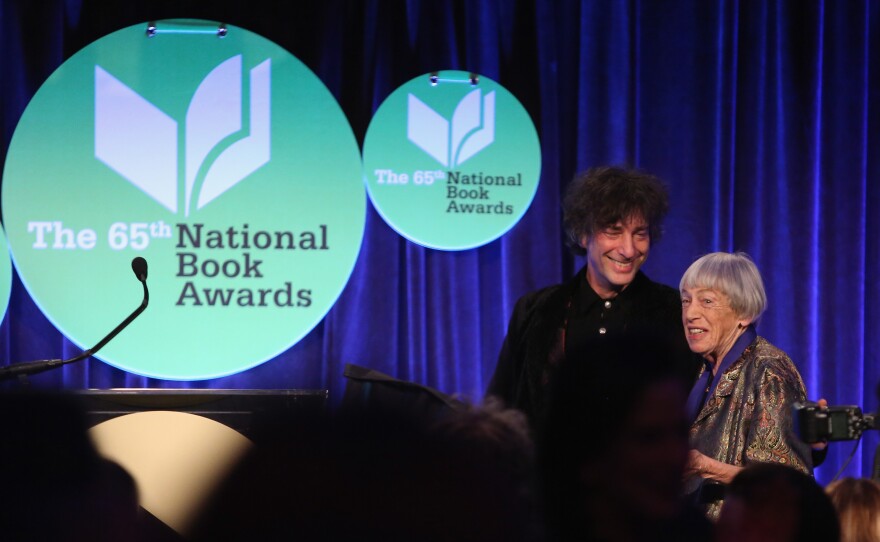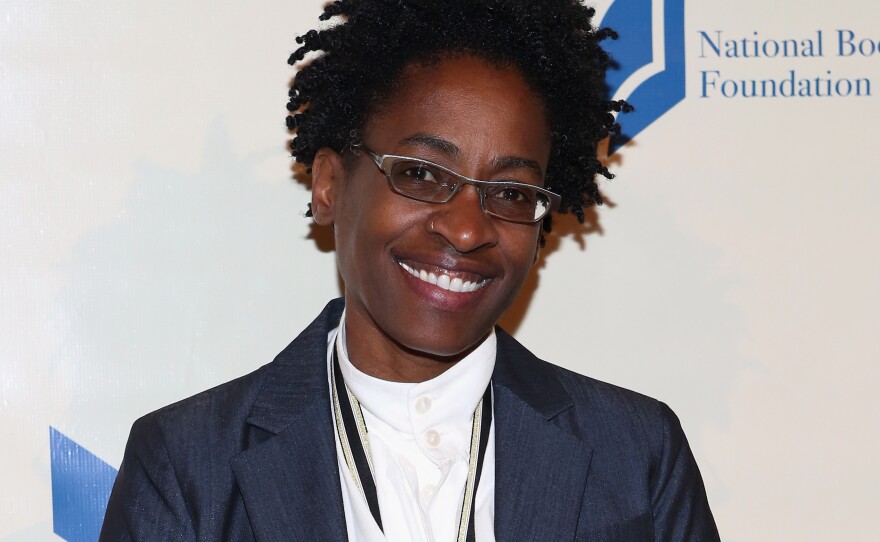
The National Book Foundation presented its annual awards Thursday night, highlighting titles in four broad genres: Young People's Literature, Poetry, Nonfiction, and Fiction.
The fiction award went to by Redeployment, a collection of short stories by veteran Phil Klay.
In reference to his subject, Klay said "I can't think of a more important conversation to be having," adding that war is to complex to be processed alone.
Age of Ambition: Chasing Fortune, Truth and Faith in the New China by Evan Osnos was chosen for the Nonfiction book of the year from a pool of more than 500. The book examines what Osnos calls China's Gilded Age, and the personal stories of people trying to negotiate it.
Osnos noted his father, who attended the ceremony, and who founded publisher PublicAffairs.
"If you go into the writing business, and your last name is Osnos, you feel a little bit like what George W. Bush must have felt like."
In thanking his fellow nominees, Osnos singled out Roz Chast's graphic novel memoir Can't We Talk About Something More Pleasant?, which he said was beautiful and deeply meaningful to him.
Osnos also thanked the average Chinese people who agreed to be interviewed for his book.
"They live in a place where it is very dangerous to be honest and vulnerable," he said.
The award for Young People's Literature was given to Brown Girl Dreaming by Jacqueline Woodson, an autobiographical book about growing up in both the South and the North during the Civil Rights era. It was Woodson's first win in three times as a finalist.
"I was complaining yesterday about how heavy the medal is, but the award is really heavy," Woodson said.
Woodson used her acceptance speech to encourage authors to tell the stories of their elders while they are still here.
"I'm so grateful to my mother for being part of the Great Migration, and getting me and my brother and sister, who are here, to New York City," she said.
Louise Gluck won the award for Poetry for Faithful and Virtuous Night, a book of abstract poems featuring an aging painter facing his own decline.
"My work would not exist without the work of the other finalists, and my colleagues in poetry," Gluck said, thanking them for their "great and diverse achievements."
To learn more about the 20 finalists, see our story about the nominees.
Copyright 2014 NPR. To see more, visit http://www.npr.org/.






